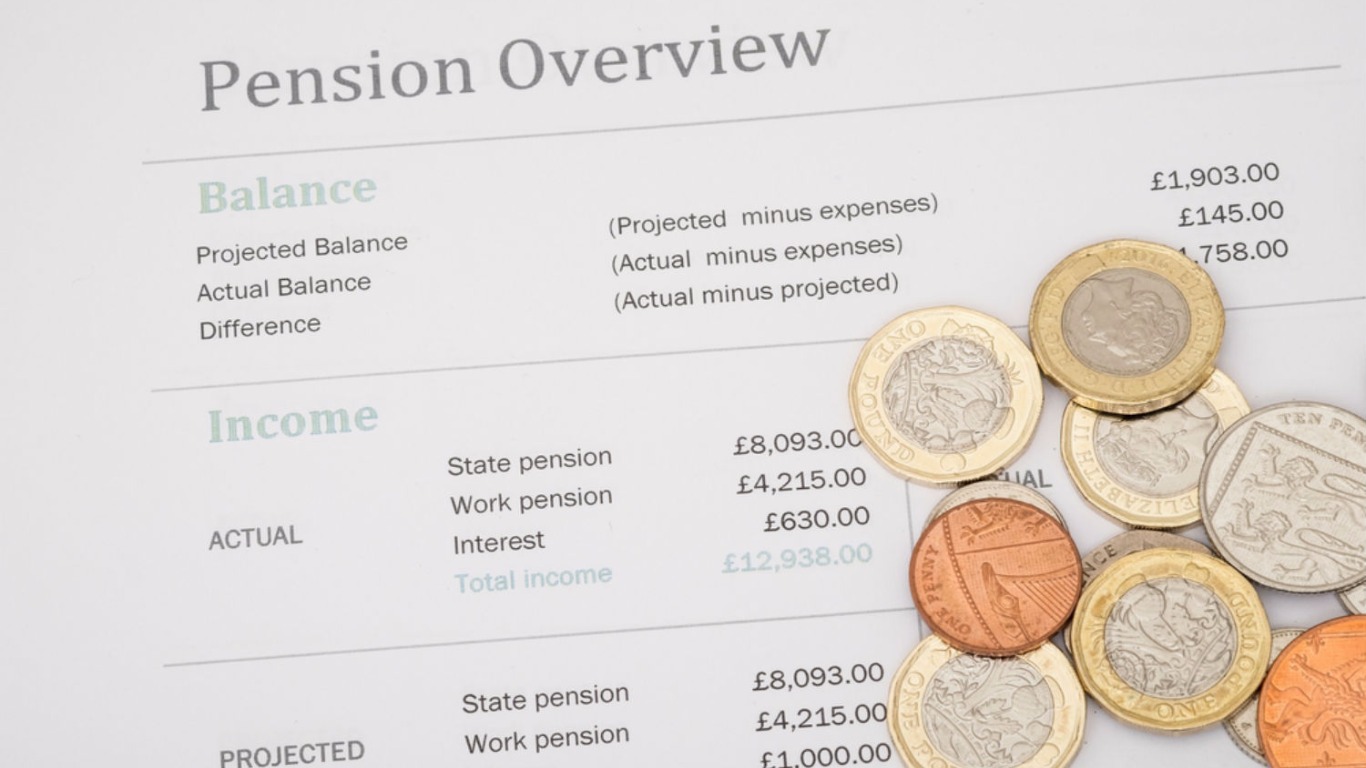Equity release vs pension withdrawals: which is right for me during lockdown?

If money is tight and you have the option of tapping into either your private pension or your property, which is the lesser evil?
Many people are looking for ways to supplement their incomes at the moment, with the ongoing lockdown having a knock-on effect on the money coming in.
And if you’re over the age of 55, you have a couple of extra options in the forms of equity release and pension withdrawals.
But what are the pros and cons of each? And which is going to be best for you?
Sitting on equity
Equity release is a type of mortgage product, which allows you to unlock some of the equity you have built up in your property.
 You borrow against the value of your property, with the loan ‒ and the interest charged ‒ paid off once the property is sold off when you pass away or move into care.
You borrow against the value of your property, with the loan ‒ and the interest charged ‒ paid off once the property is sold off when you pass away or move into care.
Check out our comprehensive guide to how equity release works, and the different sorts of plans available.
It’s become significantly more popular among the over-55s in recent years, with £1.06 billion of property wealth accessed through these deals in the first quarter of this year alone, up by 14% in the same period of 2019, according to the Equity Release Council.
This improving popularity is down to all sorts of different reasons.
For one, the products have become more competitive and flexible, for example by allowing you to make payments towards the debt rather than leaving it until you die.
Rising property prices have also been a driver, with plenty of older people choosing to give younger relatives their inheritance early in order to help them get onto the housing ladder.
Of course, the lockdown has impacted the way these lenders offer their deals ‒ they cannot conduct physical valuations for example, while many of those who would borrow are self isolating so cannot enjoy the face-to-face advice from independent advisers that is part and parcel of the equity release process.
What's more, early indications are that the rates on equity release products are increasing.
According to financial data site Moneyfacts, over two-thirds of lifetime mortgage lenders increased rates on selected deals in April, "showing clear signs that the market is moving away from the rate cut competition seen just a few months before – which had resulted in the average rate falling to a record low".
Nonetheless, it’s understandable if older people are looking at their stretched finances ‒ or those of their loved ones ‒ and see the equity held in their home as a potential answer.
After all, according to Canada Life an incredible £381 billion is owned in property wealth by older people, a huge reserve to call on if times get tough.
Lump sum vs drawdown
One attractive option for some borrowers, particularly at the moment, is that you can go for a drawdown lifetime mortgage rather than a lump sum.
Effectively you arrange a ‘cash facility’ that you can tap into as and when you need it.
This flexibility may be particularly valuable if you’re just looking to supplement an income that’s taken a temporary hit, and it also tends to cost less than releasing a lump sum in one go.
What will it cost me?
There are of course plenty of downsides to equity release. There’s no getting away from the fact that it is going to work out more expensive than a traditional remortgage, for example.
Part of this is the fact that the interest rates are higher, but as you aren’t making repayments as you go that interest is then charged on the entire loan, meaning it can ramp up significantly.
As outlined by lender SunLife, a £50,000 lifetime mortgage with a 4% interest rate could leave you owing the best part of £95,000 after 15 years.
That doesn’t mean it’s the wrong choice for you ‒ you may not be able to get a traditional remortgage anyway ‒ but it should be considered carefully before you sign up.
It’s also not going to be a quick fix.
Realistically getting an equity release plan concluded will take some time, so if you need the money swiftly, it may not be the ideal option, particularly at the moment where processes are a little delayed.
One important thing to bear in mind is that come what may, your loved ones will at least not be left owing money should you live for longer than expected after taking out an equity release deal, as lenders have adopted a ‘no negative equity pledge’.
Not convinced: 4 alternatives to equity release
Pension withdrawals

The introduction of the pension freedoms meant that savers over the age of 55 were given the ability to tap into their pension pots as and when they needed to.
And perhaps unsurprisingly increasing numbers feel they need to right now.
A study by investment firm AJ Bell found that around one in 10 of the over-55s surveyed have already, or plan to, access some of their pension earlier than expected as a direct result of the Coronavirus pandemic.
This is backed up by stats from HM Revenue & Customs (HMRC) which revealed that the number of people making pension withdrawals jumped 23% in the first quarter, with the value of those withdrawals up by 19% on the same period in 2019.
While this may be more straightforward than going through the process of taking out a new form of mortgage, again there are all sorts of possible downsides to consider.
For starters, given the way the value of pension funds have dropped this year, there is a very real risk of running out of money in old age.
If you started taking a 5% income from your fund, but that fund dropped in value by 20% in the first year of drawdown ‒ far from rare at the moment ‒ you could see that money wiped out in less than two decades.
What’s more, you will trigger the Money Purchase Annual Allowance, which will slash the amount many people can save in a pension without being taxed each year from £40,000 to a paltry £4,000.
A question of crystallisation
Tom Selby, senior analyst at AJ Bell, points out that the way that you tap into your pension can also have big consequences.
In order to get the 25% tax-free cash to which you are entitled, you need to ‘crystallise’ your pension, which essentially means choosing a retirement income route, for example, drawdown.
He explains: “If you choose drawdown then once you have taken 25% of your fund as tax-free cash, the remaining drawdown fund continues to benefit from any investment growth.
However, if you crystallise your entire fund you have taken all the tax-free cash you can from that fund – you can’t go back and take more if the drawdown fund grows.”
Thankfully there is the option of partial crystallisation. So for example, if you think you need £10,000 and have a pot worth £100,000, you could crystallise £40,000 of the pot, meaning you get that £10,000 tax-free.
The rest of the pot would then have the chance to increase in value over time.
What should I do?
In an ideal world, you wouldn’t need to tap into your pension or release equity from your property to give your finances a helping hand at the moment, but this is far from an ideal world.
Ultimately, the right choice for you will come down to the equity in your home, the size of your pension pot, and what other options you have open to you, such as savings or support from the Government.
But whatever you opt to do, it's a good idea to get some independent advice about your options and discuss your thinking with your family as they may also be impacted, particularly if you go down the equity release route.
Comments
Be the first to comment
Do you want to comment on this article? You need to be signed in for this feature